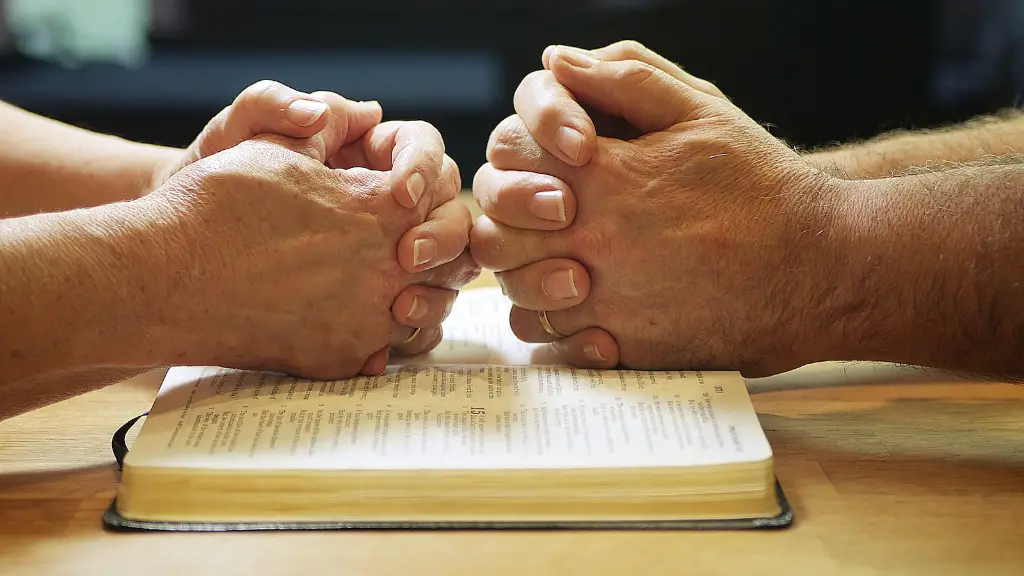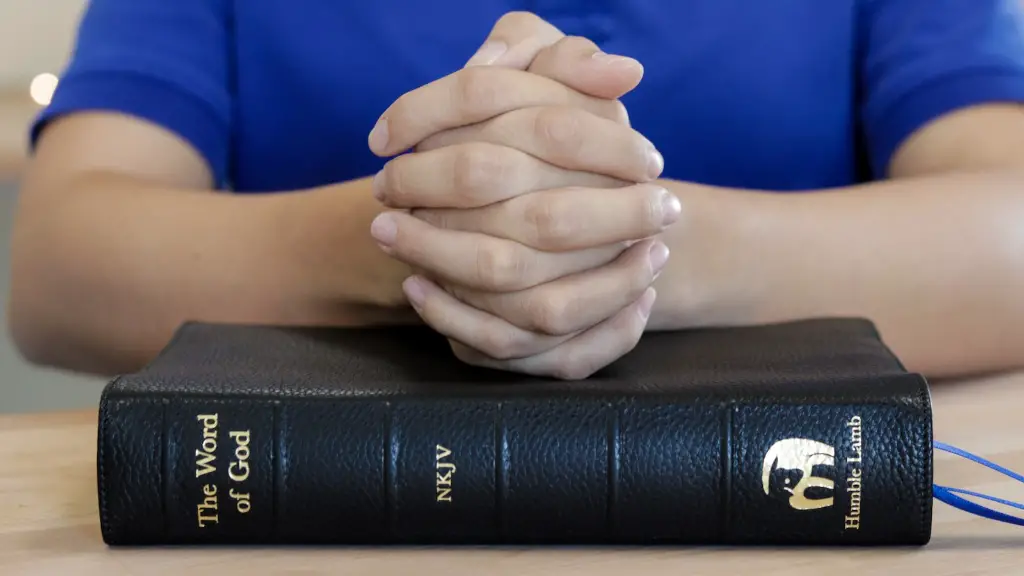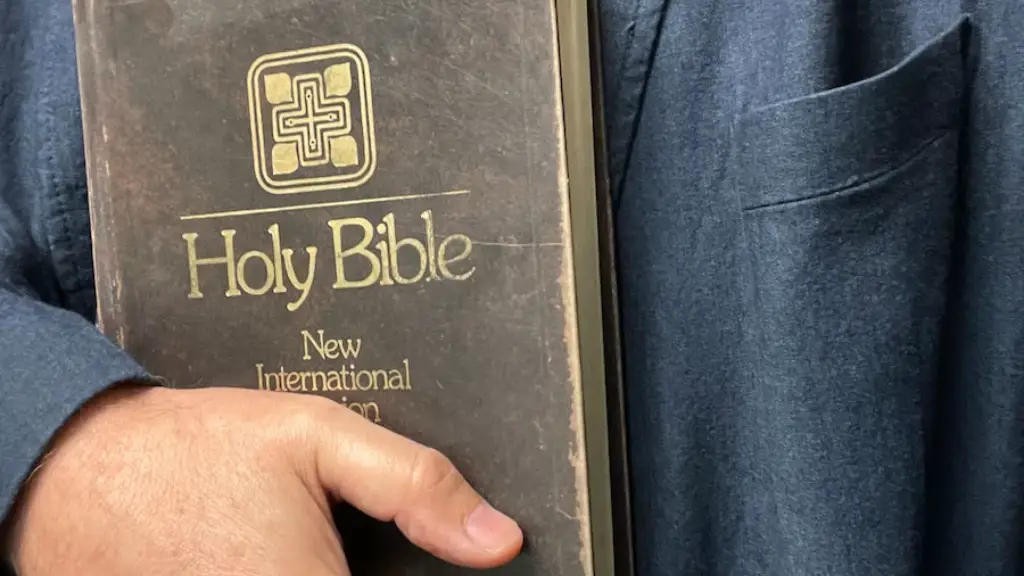Abortion is a subject that has appeared in many religious texts, debating its moral and ethical implications. One such system of belief is Christianity. The Bible is used by some Christian denominations as a literal text that is binding and relevant today. It is this interpretation of Christianity that sets numerous boundaries, guidelines and prohibitions that often divide societies around the world. As such, it is of supreme importance to analyse what the Bible does or does not say about abortion.
From a textual perspective, there is no clear mention of abortion in the Bible. Hosea 9:11-16, Psalm 51:5 and Jeremiah 20:16-17 have been considered to possibly refer to abortion, yet this interpretation is unclear and can not be fully taken into consideration. New Testament texts have been highlighted as referring to abortion, with Galatians 1:15, Luke 1:44 and Romans 9:3 being examples, yet they merely deny a woman the right to do something wrong, without particularly referring to abortion in itself.
In essence, the Bible doesn’t clearly state whether or not a woman should have an abortion. Despite this, it does contain several passages that are used to support a certain viewpoint on the debate. Luke 1:42 states that John the Baptist leaped in the womb of his mother Elizabeth at the sound of Mary’s voice and so it can be argued that life begins at conception, hence abortion is considered to be morally wrong.
Furthermore, one can consider certain Biblical stories as possible evidences of God’s stance on abortion. If God commanded Abraham to sacrifice Isaac, he could have, hypothetically, also instructed him to abort him. Instead, the plot changes and Isaac is saved. The same could be said of the story of Pharaoh’s decree that all male Israelite children should be put to death at birth. Exodus 1:16,17 talks of the actions of the midwives, who defied Pharaoh and saved the lives of the male children.
On the other hand, we could consider other passages as evidences of more lenient stance on the issue. The 22nd and 23rd chapters of Exodus state that if a woman was engaged in a physical altercation with an assailant and happened to suffer a miscarriage, her assailant was only to be fined, which could suggest that the Bible doesn’t consider a fetus to be the same as the mother, hence disregarding the unborn as having the same rights as the mother, leading to a permission for abortion.
Certain Christian denominations hold extremely strong views on abortion, and refuse it completely, citing the Bible as a source for their argument. Moreover, there are those that consider it to be wrong, but only in certain cases such as rape or to save the life of the mother. Others consider it to be acceptable in certain situations and a woman’s choice.
Religious Leaders and Views on Abortion
Religious leaders, such as Pope John Paul, have taken a stance on the matter of abortion and prohibited it, including in cases when a woman’s life is at risk due to the pregnancy. Furthermore, he argued against contraception as a way of avoiding abortion, as he considered it to be a sin in itself. Lastly, he believed that pregnant women should keep the child, regardless of the circumstances.
It is to be noted, though, that not all religious leaders take the same stance on the issue of abortion. Numerous Evangelical Christian ministries, such as the Southern Baptist Convention, are known to strongly forbid abortion. On the other hand, Buddhist and Hindu religious leaders alternate between depending on the circumstances, allowing for a certain religious tolerance on the subject.
Contemporary Laws and Regulations
Various countries around the world have implemented a legal system that allows for abortions, depending on the situation and the stage of the pregnancy. The United States of America, for example, have formulated a relatively liberal judicial framework that allows for abortions in certain cases, although it does also restrict third trimester abortions and in certain states, only allows for abortions if the woman’s life is at risk.
Elsewhere around the world, the laws and regulations vary considerably. For example, almost all European countries permit abortions until a women reaches 12 weeks. Then, in some other countries the availability of legal abortions depends on the region, with some states in Mexico, India and Brazil having more lenient legislation while other being oppressive, based on religious beliefs.
Conclusion of Research into Bible’s Stance on Abortion
In conclusion, it is difficult to determine the Bible’s definitive stance on the topic of abortion. There are passages that appear to provide evidence to forbid it in certain situations, yet other events in the Bible’s narrative could suggest a more lenient stance towards the issue. Moreover, the views of religious leaders and those of legislatures provide a range of opinions on the issue.
As such, when analysing the Bible’s stance on abortion, one must take into consideration the context of each situation. It is sure to evoke appreciable discussion and the ultimate decision should be made by the individual, taking into consideration the moral implications.
Organization Support for Women Seeking Abortions
Women around the world are often unable to gain access to safe abortions, either due to financial issues or legal limitations. As such, numerous organizations around the world provide much needed support by providing emergency funds and scholarships, free access to contraceptives, legal aid and counseling services.
Exemplary organizations of this type include the National Network of Abortion Funds, established in 1993 in the United States of America and which has since been providing financial assistance for those unable to afford an abortion, considering the legal status. This organization has local networks and works in 11 states, with branches in numerous other countries including the UK, Canada, Greece and Australia among others.
Moreover, Abortion Support Network is an organization established in 2009 which has been providing support and aid to those women and couples facing difficulties while trying to access an abortion. The organization offers counseling, financial aid and even lodging in certain circumstances. It operates in the UK, the US, Northern Ireland and the the Republic of Ireland.
It is important to remember, however, that although they may provide support to those in need, they are not always directly involved in the abortions themselves and in certain cases, are unable to provide any material help due to legal restrictions.
Educational Disparity and its Impact on Abortions
When it comes to abortion, educational attainment plays an integral role. Although education does not necessarily equate to wealth, it generally does increase the chances for a successful career. This, in turn, could lead to an increased income, allowing for the money needed to access a safe abortion or prenatal care.
A noteworthy example can be seen in the USA, where statistics from the Guttmacher Institute denote that 73% of women who had an abortion had completed high school, while 36% had completed, at least, some higher education.
When it comes to international scales, the same sort of disparities can be seen, although in most cases the outcomes concerning abortions can be even more dire. Women who are less educated are far more likely to turn to unsafe methods to circumvent a pregnancy, leading to a greater chance of death or the development of complications.
Psychological Trauma Post-Abortion
The psychological trauma post-abortion is a contentious topic and there is a myriad of opinions surrounding its effects. It has been argued that the perceived negative psychological effects of an abortion, such as guilt, depression, and suicidal thoughts, are highly exaggerated, claiming that this could be attributed to the stigma that accompanies having an abortion.
Studies have indeed shown that a majority of women experience merely transient emotions of guilt and regret and are not subject to long-lasting psychological problems in the aftermath.
At the same time, however, some studies argue for the existences of post-abortion traumas, citing the physical aftermath of an abortion and the loss of an unborn child as factors that could lead to a number of psychological symptoms. Almost all these studies, however, agree on the importance of pre and posts-abortion counseling and the impact they have on dealing with such traumas.





